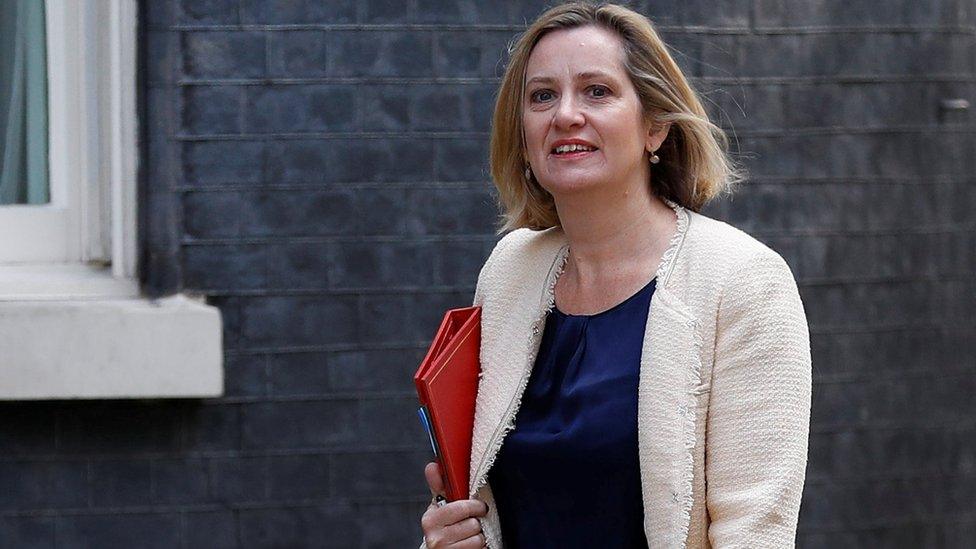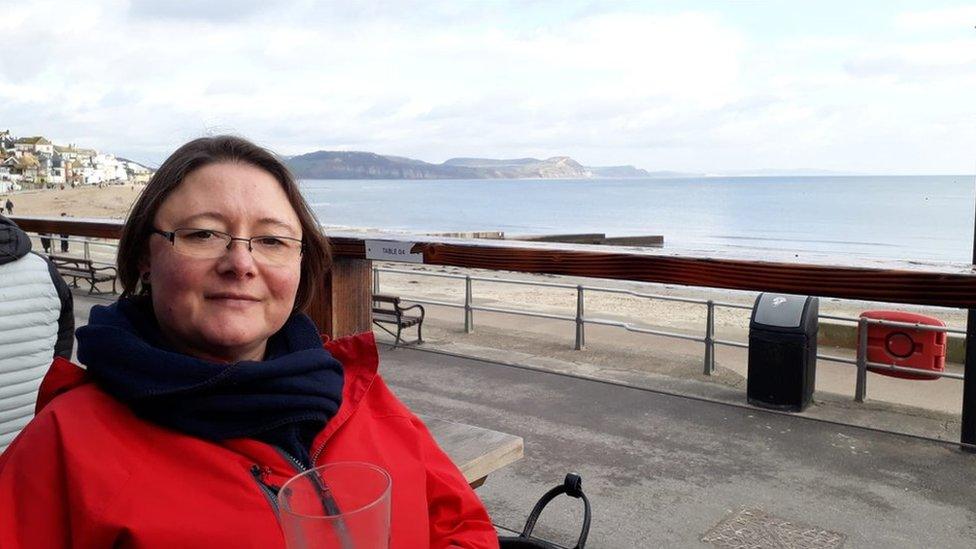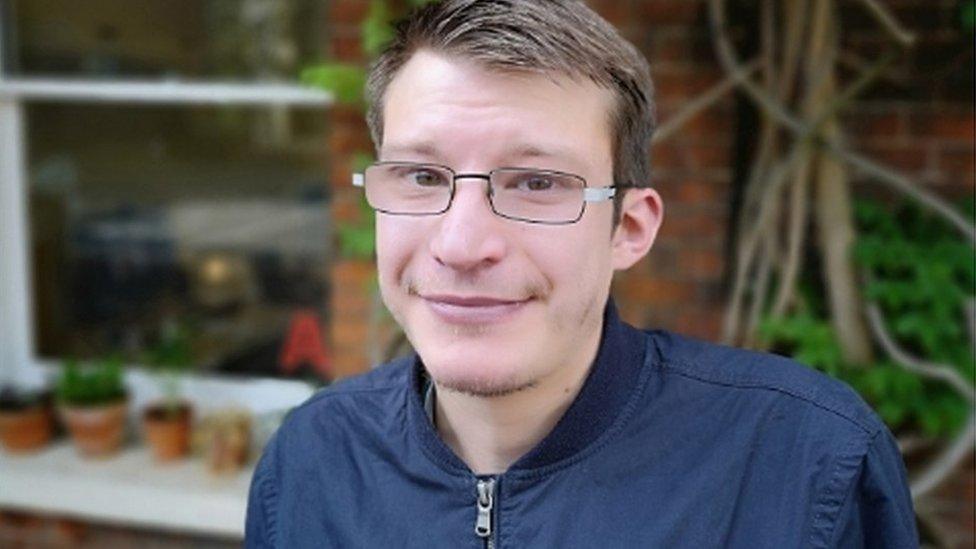Benefits for terminally ill people to be reviewed
- Published

The government will review its benefits system for the terminally ill following a damning parliamentary report.
Currently, when a person's death is expected within six months they qualify for fast-tracked access to benefits.
But this system was dubbed "outdated, arbitrary and not based on clinical reality" by the All-Party Parliamentary Group (APPG) for Terminal Illness.
Work and Pensions Secretary Amber Rudd said "vulnerable people" should not have to suffer "unnecessary hardship".
Charities told the APPG that the struggle to access benefits was making people's lives a "total misery".
The six-month rule, introduced into law 30 years ago, means terminally ill people who are expected to live longer than half a year are missing out on having their benefits claims fast-tracked and simplified.
The Department for Work and Pensions was criticised by the APPG for its "overly time-consuming, demeaning and insensitive" processes, and the report noted instances of department officials overturning and challenging clinicians' judgments.

'The last thing you want'
Mark Hughes, 57, worked as a truck driver before being diagnosed with terminal bone cancer.
He told the DWP he was unable to work, but he did not qualify to have his benefits fast-tracked - and says he was then repeatedly sent forms to fill out, some "as long as War and Peace".
"Anybody with a terminal illness should be fast-tracked," Mr Hughes told the BBC, adding, "why can't one department be dealing with it, so you're not passed around from pillar to post".
"Jane, my wife, has just been told her husband is going to die - and while she's got that grief, she's then having to understand reams and reams of paperwork.
"They're not a five-minute thing these papers. They can take a day, two days - and that's the last thing you want to be doing when somebody is dying."
He adds: "The patient is only going through it once, but the family is going through it twice. They're watching their loved one die and then, once they've died, they've got to go through it all again - with more paperwork."

Ms Rudd said experiences within her own family had shown her that the last thing people nearing the end of their lives need was "financial pressures or unnecessary assessments".
She continued: "So that's why today I am beginning work on a fresh and honest evaluation of our benefits system, so that I can be sure that people who are nearing the end of their life get the best possible support.
"I hope that this comprehensive evaluation of how we treat those with severe conditions and terminal illnesses, will help ensure these vulnerable people get the support they need from our benefits system.
"I want people to have confidence in what we do at the DWP and no one should be suffering unnecessary hardship at this especially difficult time."
Negative impact
Last week's report said some doctors were struggling to accurately predict how long patients had to live - particularly those with non cancer-related conditions.
It also found some doctors feared patients could be negatively impacted by learning they were expected to live less than half a year.
It recommended the government scrap the six-month rule and adopt a new definition, based on incoming law in Scotland, which allows clinicians to use their own judgment to certify whether a patient is terminally ill.
A majority of GPs told the Royal College of General Practitioners that they would support this change, the report said.
- Published11 July 2019

- Published3 July 2019

- Published7 July 2019
